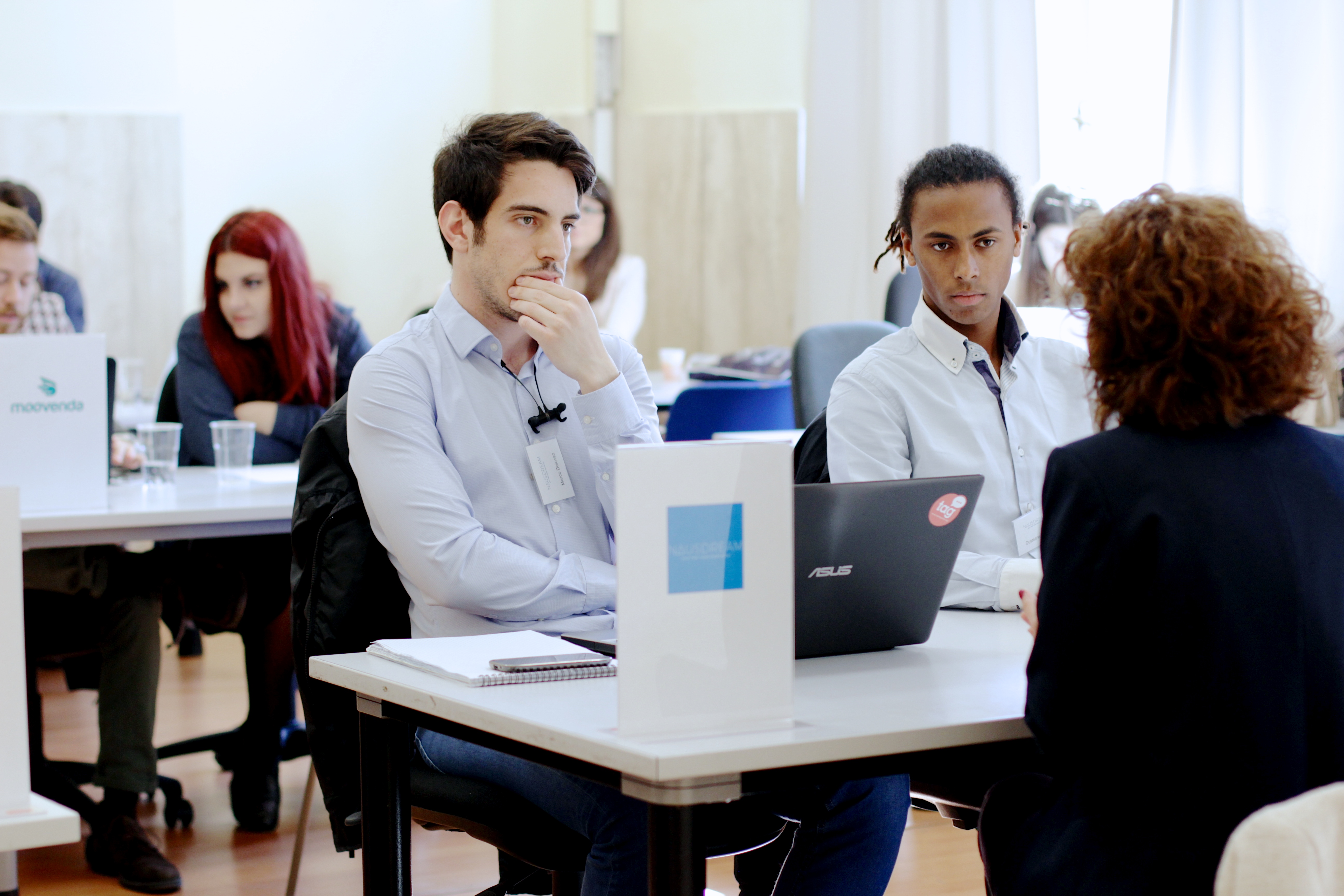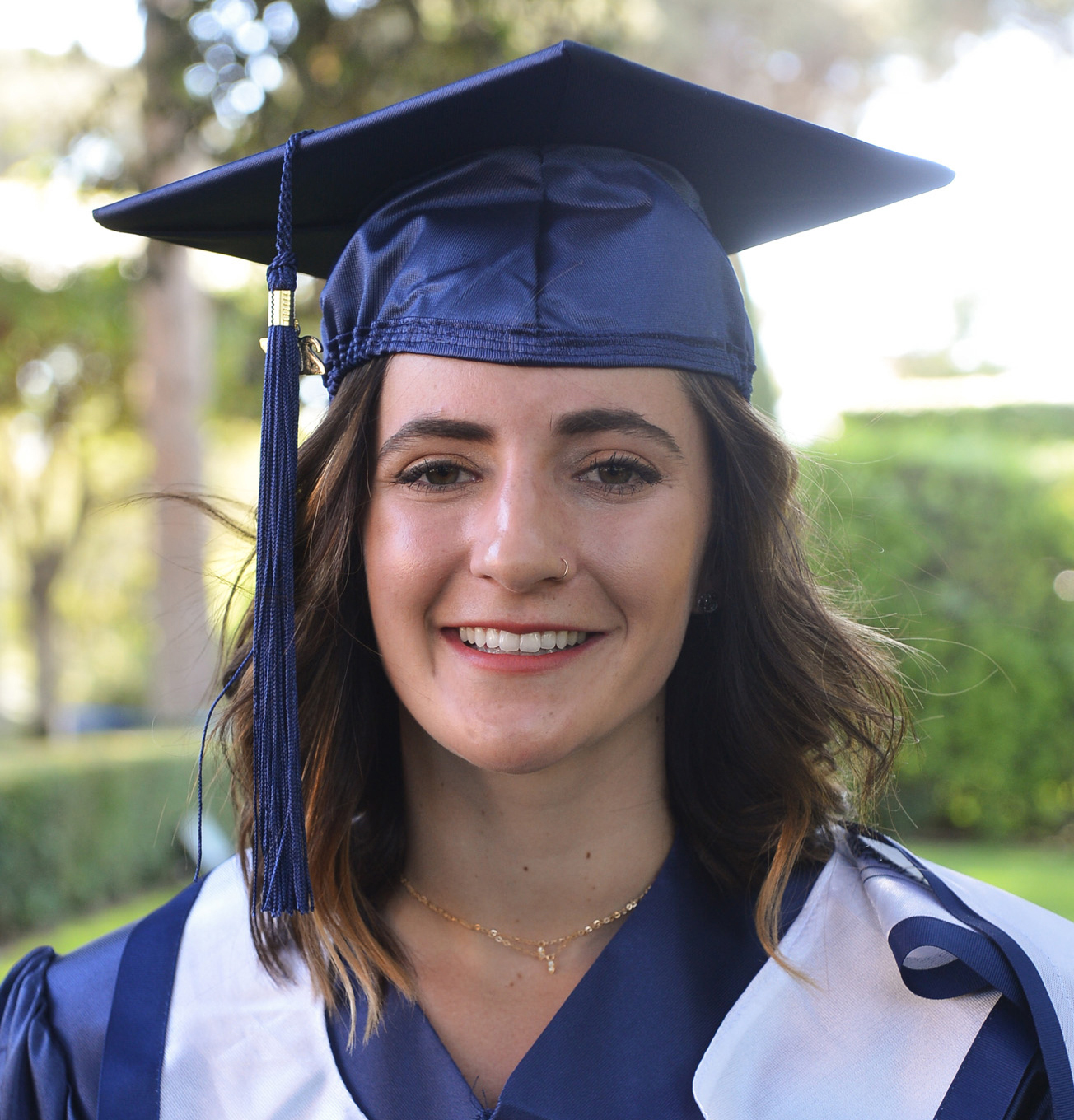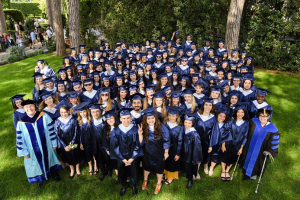

Applying to jobs is a job in itself. It is exhausting trying to summarize the history of your education and work experience. I once spent hours trying to figure out how my time working at a self-serve frozen yogurt shop as a teenager could be applied to interning at a public relations firm.
The stress level for college seniors looking for their first post-graduation job is high, and as we are repeatedly told, the competition is heavy. Most students want to gain work experience or job-search skills before parting ways with the (relatively) comfortable student life. This is why John Cabot University offers dedicated courses on how to build a resume/CV, write a cover letter, and prepare for the professional world. The courses Business Communications (BUS 220) and Professional Skills for Career Development (EXP 1004) help students understand how the job market works and assists them in preparing for their careers.
I was fortunate enough to have the flexibility to enroll in both BUS 220 and EXP 1004, with the hopes  that I would come out with a resume/cover letter combo that would guarantee me a position in the working world. Through Business Communications with Professor Roberts, I learned about the unnecessary information I needed to take out of my resume. Roberts explained that employers scan over a resume in a matter of seconds, and they don’t want to be bothered with sentences about your feelings or irrelevant information. So, I tightened my resume, making sure it fit on one page, and cut out the fluff. With Roberts’ guidance, I wrote a cover letter, which was to the point but also reflected my work goals, and explained my specific soft and hard skills.
that I would come out with a resume/cover letter combo that would guarantee me a position in the working world. Through Business Communications with Professor Roberts, I learned about the unnecessary information I needed to take out of my resume. Roberts explained that employers scan over a resume in a matter of seconds, and they don’t want to be bothered with sentences about your feelings or irrelevant information. So, I tightened my resume, making sure it fit on one page, and cut out the fluff. With Roberts’ guidance, I wrote a cover letter, which was to the point but also reflected my work goals, and explained my specific soft and hard skills.
Speaking of soft and hard skills... this is important! Know the difference between the two, and include both in your applications. Soft skills relate to emotional intelligence and consist of things like communication skills, patience, teamwork, and time management. Hard skills are technical skills such as proficiency in a foreign language and specific computer application skills. It's great that you are a “people person”, but it's important to create a balance between explaining your personality and showing you have the technical skills required to carry out the work.
And while I'm on the topic: what the heck is the difference between a CV and a resume? I had no idea before I took the course, but I learned from Professor Roberts that a resume is a brief summary of your skills and experience, while a CV (Curriculum Vitae) is more detailed and usually longer than a resume. Most jobs will want to see a resume layout, with a more in-depth cover letter to flesh it out, but certain jobs (for instance, in the academic world) may require or prefer a CV.
I ended Professor Roberts’ course feeling satisfied with my professional documents, but I decided to sign up for another class pertaining to career development. I am currently enrolled in Professor Salvatore’s EXP 1004 course, which takes place on four Fridays throughout the semester. It is a one-credit Pass/Fail course. We have only had one class so far, and although my resume and cover letter are in good shape, I realized I'd completely overlooked another aspect of competing in the job market: my social media accounts.
We are focusing specifically on LinkedIn: how to manage and make the most of an account. Prior to this class my LinkedIn profile was, frankly, halfheartedly slapped together, and my listed work experience outdated (hello, frozen yogurt shop!). I decided to delete the profile altogether and start fresh. Professor Salvatore gave us some tips on how to connect with people through LinkedIn and she discussed the importance of writing a personal message when trying to connect with a past employer or professor, as well as having a professional photo. We will build our profiles throughout the semester, which I am very thankful for, and learn how to effectively market ourselves.
While I'm not an expert on how to write a resume, CV, or cover letter, I do feel much more confident  after taking these two courses. As Professor Roberts taught us: make sure your resume is clear, direct, and avoids any “fluff”. If you have a decent amount of work experience, only include the jobs that relate somehow to the field you are applying for. And as Professor Salvatore taught us: pay attention to your LinkedIn account! It may be able to connect you with somebody who could be your future boss or colleague. Good luck, my fellow as-of-yet unemployed college seniors!
after taking these two courses. As Professor Roberts taught us: make sure your resume is clear, direct, and avoids any “fluff”. If you have a decent amount of work experience, only include the jobs that relate somehow to the field you are applying for. And as Professor Salvatore taught us: pay attention to your LinkedIn account! It may be able to connect you with somebody who could be your future boss or colleague. Good luck, my fellow as-of-yet unemployed college seniors!

Carly Newgard
Communications major, Humanistic Studies minor
Class of 2017
Hometown: San Diego, California




